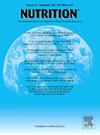Insufficient diet management and monitoring of patients during phase 2 and 3 pharmaceutical clinical trials: A narrative review with a systematic approach
IF 3.2
3区 医学
Q2 NUTRITION & DIETETICS
引用次数: 0
Abstract
Clinical trials play a vital role in developing new medications for nutrition-related diseases, such as phenylketonuria (PKU), obesity, and diabetes. Dietary management is often a critical component of these trials, as consistency in diet can significantly influence outcomes and the evaluation of drug efficacy. While the Federal Drug Administration (FDA) provides guidance on managing and monitoring diets in clinical trials, the extent to which these practices are implemented remains unclear. This review examines diet management practices in phase 2 and 3 clinical trials for weight loss, type 2 diabetes, and PKU. A systematic review methodology was employed, with PubMed and Cochrane searches identifying 14 articles for weight loss and diabetes trials and 5 articles for PKU trials that met inclusion criteria. Key practices include the use of inclusion/exclusion criteria, study endpoints incorporating multiple biomarkers, and the implementation of specific dietary protocols. Weight loss and PKU trials were more likely to employ detailed dietary guidelines than diabetes trials. However, all the reviewed studies lacked critical elements outlined in published nutrition research guidelines. This review underscores the variability and deficiencies in diet management practices in clinical trials for nutrition-related disorders. These gaps highlight the need for more standardized and transparent approaches to dietary monitoring and reporting in order to improve the reliability and reproducibility of trial outcomes.
2期和3期药物临床试验期间患者饮食管理和监测不足:一项系统方法的叙述性综述
临床试验在开发治疗营养相关疾病(如苯丙酮尿症(PKU)、肥胖和糖尿病)的新药方面发挥着至关重要的作用。饮食管理通常是这些试验的关键组成部分,因为饮食的一致性可以显著影响结果和药物疗效的评估。虽然美国联邦药物管理局(FDA)在临床试验中提供了管理和监测饮食的指导,但这些实践的实施程度仍不清楚。本文综述了减肥、2型糖尿病和PKU的2期和3期临床试验中的饮食管理实践。采用系统评价方法,PubMed和Cochrane检索确定了14篇关于减肥和糖尿病试验的文章,5篇关于PKU试验的文章符合纳入标准。关键实践包括使用纳入/排除标准,纳入多种生物标志物的研究终点,以及实施特定的饮食方案。减肥和PKU试验比糖尿病试验更有可能采用详细的饮食指南。然而,所有被审查的研究都缺乏发表的营养研究指南中概述的关键要素。这篇综述强调了营养相关疾病临床试验中饮食管理实践的可变性和不足。这些差距突出表明,需要采取更加标准化和透明的饮食监测和报告方法,以提高试验结果的可靠性和可重复性。
本文章由计算机程序翻译,如有差异,请以英文原文为准。
求助全文
约1分钟内获得全文
求助全文
来源期刊

Nutrition
医学-营养学
CiteScore
7.80
自引率
2.30%
发文量
300
审稿时长
60 days
期刊介绍:
Nutrition has an open access mirror journal Nutrition: X, sharing the same aims and scope, editorial team, submission system and rigorous peer review.
Founded by Michael M. Meguid in the early 1980''s, Nutrition presents advances in nutrition research and science, informs its readers on new and advancing technologies and data in clinical nutrition practice, encourages the application of outcomes research and meta-analyses to problems in patient-related nutrition; and seeks to help clarify and set the research, policy and practice agenda for nutrition science to enhance human well-being in the years ahead.
 求助内容:
求助内容: 应助结果提醒方式:
应助结果提醒方式:


